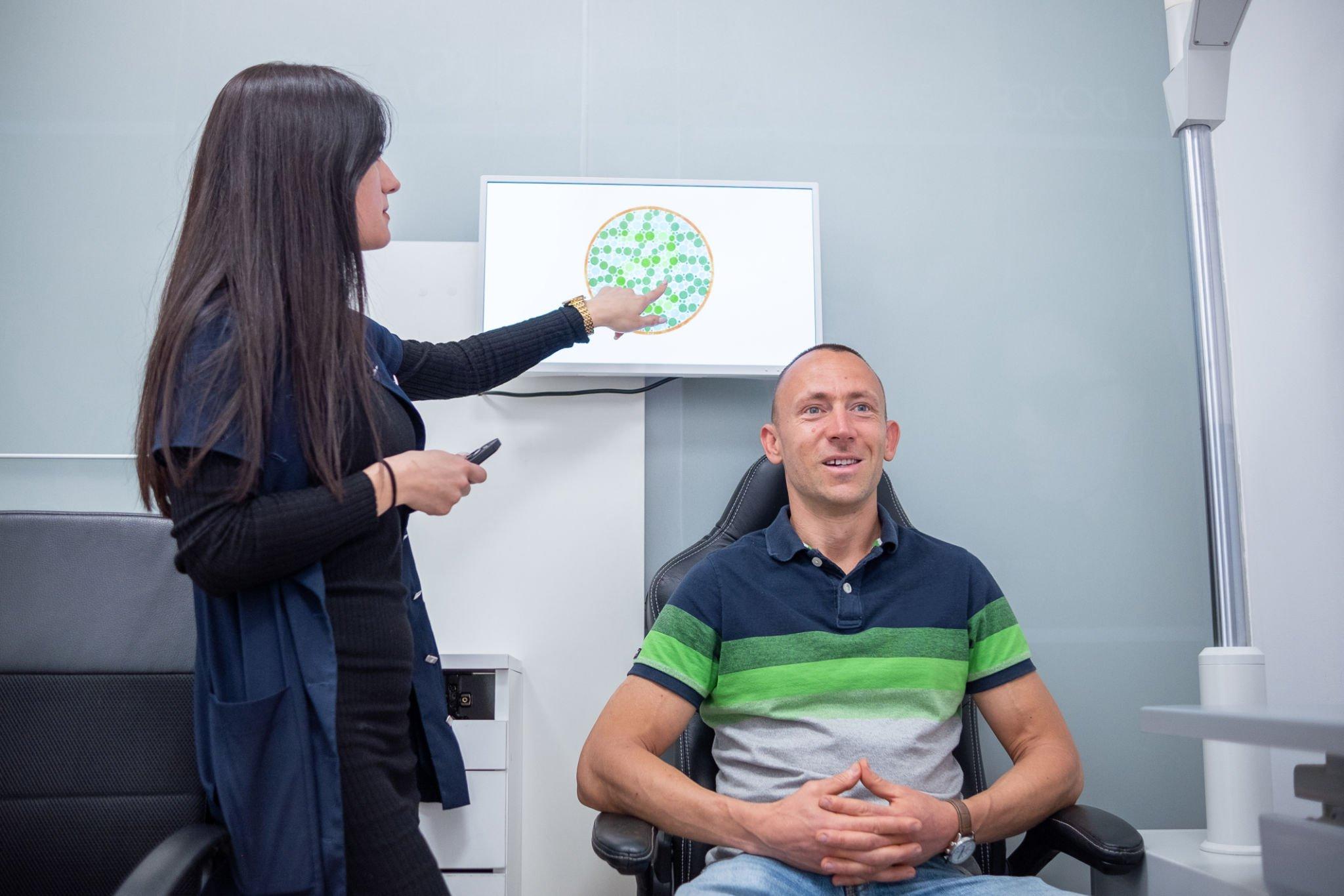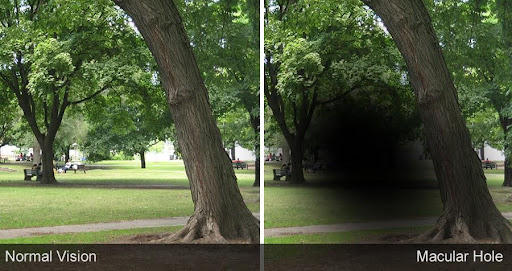Color vision deficiency or color blindness is a visual impairment that affects an individual’s ability to distinguish certain shades of color accurately. Typically, people have three types of cone cells responsible for perceiving red, green, and blue colors; however, those with color vision deficiency lack one or more of these cones or have under-functioning cones.
If left untreated, color blindness can considerably affect people, impacting everyday activities. Fortunately, different assistive technologies and specialized lenses are offered by optical clinics like Eyeonce Eye Clinic. Our expert ophthalmologists, Dr. Paik Dong Won and Dr. Jung Sae Rom have top-notch skills, experiences, and equipment to address color blindness. Their careful and thorough medical care will indeed surpass your expectations.
Types of Color Vision Deficiency
Color blindness can manifest in several ways, and it is necessary to differentiate between its types to understand the affected person’s condition better. The three primary types of color vision deficiency are the following:
Protanomaly and Protanopia
Protanomaly is a type of color vision deficiency where the eye’s red cone cells are abnormal, resulting in a reduced ability to perceive red and green colors. Protanopia, on the other hand, is a more severe form of color blindness where the red cones are entirely missing, leading to difficulty in distinguishing red and green hues.
Deuteranomaly and Deuteranopia
Deuteranomaly is the most rampant type of color vision deficiency that affects the green cone cells. People having this condition may struggle to differentiate between red and green, resulting in a perception where these two colors appear more alike. Deuteranopia, however, is characterized by a complete absence of green cones, causing similar difficulty in seeing red and green.
Tritanomaly and Tritanopia
Tritanomaly typically affects the blue cone cells and leads to a struggle to recognize between blue and green colors. Consequently, Tritanopia is the rarest type of color vision deficiency marked by a complete lack of blue cone cells, causing people with this condition to confuse blue with green or gray.
Complete Color Blindness
Individuals who cannot see colors suffer entirely from a condition called monochromacy. It is when you may have trouble seeing clearly and be more sensitive to light.
Color vision deficiency can be inborn, but you can also get it later in life. It is highly imperative to have regular eye examinations from the proficient eye care professionals at Eyeonce Eye Clinic. Early detection and intervention are vital to preserve your vision.
Causes and Risk Factors
As mentioned above, color blindness can be both genetic and acquired. Some of its leading causes include:
- Genetic inheritance – Genetic mutation or alteration in the genes that produce the photopigments in the cone cells is the most common cause of color vision deficiency. This genetic trait is passed down from parents to their children.
- X-linked inheritance – Color blindness is more widespread in males than females because of a common X-linked recessive gene, which the son can inherit from his mother.
- Acquired causes – Sometimes, color vision deficiency can be acquired later in life due to certain medical conditions, eye diseases, and exposure to certain medications and chemicals.
- Aging – An individual’s ability to perceive colors may gradually lessen.
Moreover, having certain medical conditions may increase your risk of acquiring color vision deficiency, including:
- Glaucoma
- Diabetes
- Sickle Cell Anemia
- Leukemia
- Macular Degeneration
- Alzheimer’s disease
- Parkinson’s disease
- Chronic Alcoholism
- Multiple Sclerosis
If you want to learn more about color vision deficiency causes and risk factors, book a consultation with the expert eye doctors at Eyeonce Eye Clinic today.
Symptoms and Diagnosis
Color vision deficiency can present different symptoms depending on the type and severity of the condition. Some of its symptoms include:
- Difficulty distinguishing color
- Color confusion
- Difficulty with color-coded information
- Color-related tasks
- Eyestrain and fatigue
If you are showing any of the symptoms above, do not fret. Our eye doctors at Eyeonce are experts in giving accurate diagnoses for color blindness which may include the following:
Ishihara Color Test
This test consists of plates with dots of different colors and sizes. There are hidden numbers or shapes within the dots which can only be seen by individuals with normal vision. In contrast, those with a color vision deficiency may not see the hidden figures or may mistake them for different colors.
Farnsworth D-15 Test
This color vision deficiency test involves arranging color caps in a specific order based on their hues. Conducting this test helps identify the type and severity of color blindness by analyzing the arrangement errors.
Hardy-Rand-Rittler Test
Hardy-Rand-Rittler test also uses plates with colored dots to assess color vision. Unlike the Ishihara test, the Hardy-Rand-Rittler test can provide a more comprehensive assessment and identify a broader range of color vision deficiencies, providing insights into the specific type and severity of the condition.
Anomaloscope Test
Anomaloscope test measures color matching ability and differentiates between different types of color vision deficiency, assessing the extent of color blindness.
Early diagnosis plays an essential role in understanding the type and severity of the condition. Eyeonce’s eye care professionals can provide valuable support, guidance, and personalized solutions to help address your condition.
Treatment
To date, there is no known cure for inherited color vision deficiency; however, there are assistive devices that can aid individuals with color blindness, such as:
- Color vision correction lenses
- Assistive technologies like mobile apps and digital tools can help identify colors, provide color names, and adjust color settings on digital devices.
- Color filter
- Vision therapy
Dr. Paik Dong Won and Dr. Jung Sae Rom can help you determine the most suitable intervention for your condition. While these treatments may not provide a complete cure, they can offer valuable support and improvement in color perception, enabling individuals with color blindness to better navigate and enjoy their daily lives.
Why choose Eyeonce Eye Clinic Gangnam for color vision deficiency treatment?
Utmost Patient Care
Our clinic eye care professionals and staff ensure to give you your money’s worth. We guarantee you receive the best medication possible and assure you that you are guided and understood, making you feel comfortable and confident at every step.
Comprehensive Consultation
Our eye care professionals at Eyeonce Eye Clinic offer comprehensive eye examinations to evaluate your eyes and assess what color vision deficiency treatment is best for you. Our ophthalmologists take their time to cater to your questions and address your concerns, ensuring you make an informed decision about our vision correction options.
Expert Eye Doctors
Our ophthalmologists, Head Director Dr. Paik Dong Won and Medical Director Dr. Jung Sae Rom, are highly knowledgeable and skilled in treating color vision deficiency. They always use the latest techniques and technologies to ensure optimal results.
Frequently Asked Questions (FAQs)
A visual impairment affects a person’s ability to perceive specific colors or distinguish between them accurately.
Yes. Several assistive technologies and special lenses can help individuals with color blindness see colors more accurately.
Some color tests that can help detect color blindness are the Ishihara color test, the Farnsworth D-15 test, and the Hardy-Rand-Rittler test. Only your eye care professionals can provide you with these tests.
Conclusion
Color vision deficiency (color blindness) has affected a significant portion of the global population, impacting everyday lives. Although it has no known treatment, different assistive devices offer invaluable support to individuals with this condition. Also, with Eyeonce Eye Clinic’s comprehensive color vision tests and professional diagnoses, you will surely overcome color blindness and bring color back into your life. Book an appointment with our eye doctors today. You may also visit our website for more details!



